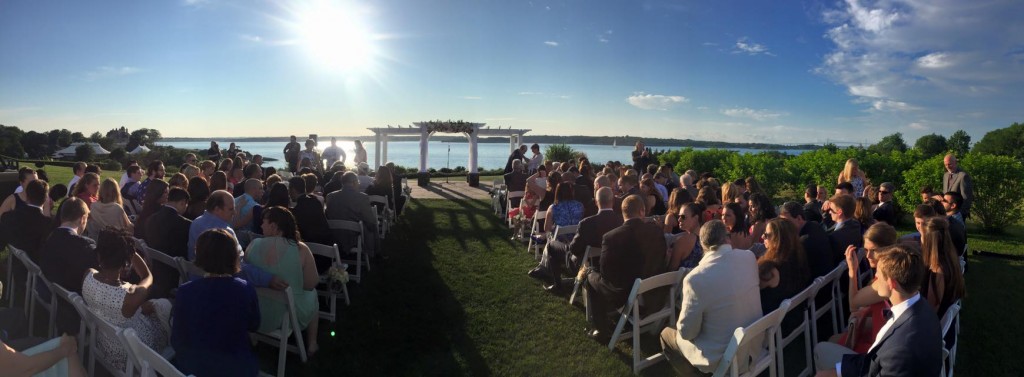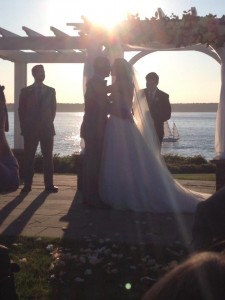Since Apple’s (poorly) staged announcement for Apple Music, there’s been a lot of “so what” and “big deals”—It’s just another Spotify. I think that’s partially correct, if you think that the logical outcome for the streaming music business is that everything is streamable.
But I don’t think that’s where the music business is going, at least not in the short-term. Not if the labels have anything to say about it. (And today, they do.)
Instead, I think Apple’s strategy (paid streaming only, Beats One radio station, artist outreach) is a 3-pronged approach to become the preferred and select distributor of new music for most artists, and be the only game in town (or at least one of a handful) where you can find every song you want.
Even if you can’t stream it.
Paid Streaming
Apple is only doing paid streaming. No free tier. That’s, potentially, a huge knock against them when it comes to the likes of Spotify and Pandora, with their free, ad-based streaming level . Spotify has 20 million paying subscribers, with another 55 million free subscribers . That’s a lot of people listening for free, paying only with eyeballs and earholes. And, as of 2014, Spotify, with it’s 20 million paying subscribers, was not a profitable business . Now, that’s not to say I think Spotify is going to go out of business tomorrow. Just that it sets the table for why Apple is doing only a paid tier.
Taylor Swift famously pulled her album off of Spotify (and other streaming platforms) because she didn’t think her music should be free:
It’s my opinion that music should not be free, and my prediction is that individual artists and their labels will someday decide what an album’s price point is
So most (major) artists don’t want streaming, and don’t make money off it. Follow any of them on Twitter and they’ll tell you how little they make from streaming, particularly from free streaming. Apple offering only a paid tier is a great way to ingratiate themselves with the labels and the artist—see, we love you, we won’t make you deal with this silly free streaming bit (free trial aside).
Apple gets to walk up to the artists and labels and say “Everything is paid, oh, and Spotify’s 55 million accounts? We have 800 million iTunes accounts.” Apple has 800 million iTunes accounts, most of which likely have a credit card.
Apple comes to the game with the potential to bring 800 million paying customers to the music industry.
Oh, and the Apple Music app will come pre-installed on every iOS device. Of which, there’s been a billion sold.
Let’s even cut it in half and say there’s 500 million active iTunes subscribers. That’s 10x Spotify’s total base. Cut in to 25%. 200 million possible paying customers for Apple Music, 10x Spotify’s paying base.
All of whom just have to click a button to start paying 10 bucks a month for music. It wouldn’t shock me to see Apple Music pass Spotify in the first 6 months.
Doesn’t matter that Apple is late to the game. They’re going to be the biggest player in streaming music by the end of 2016, at the latest.
Beats 1 Radio
If streaming is going to be so important, and users will have all this music at their hands, what’s up with Beats 1 Radio? Besides Russ ‘3 commas’ Hanneman on Silicon Valley, who cares about radio on the internet?
Well, loads of people still use Pandora to discover music. Or listen to something to point them to new stuff (podcasts, youtube, friends). There’s still some need for serendipitous discovery of music. Beats 1 is Pandora, with a human DJ.
Oh, and with shows from major artists, who will come on to promote their own albums, or albums of other artists.
I’m sure both Pandora and Spotify slip promoted artists into their recommendations, but they have to do it subtly. They would jeopardize their existing base if they were obviously shoving paid artists into their algorithmically generated playlists.
“You’re listening to Arcade Fire. Here’s the new one from Taylor Swift.”
Beats 1 can do that. Even if it won’t be as cynical as that, Beats 1 has human DJs. They can promote new songs all the time. They can break artists and new music. Artists can debut new songs and albums on their own shows.
It’ll likely become commonplace for an artist to put together a couple of shows for Beats 1 as part of the lead up to a new release. With an easy one click “add this to your library” button right there to generate more streams for the artist.
Artist Outreach
Beats 1 and paid streaming are two ways to draw artists closer to Apple. And to help Apple start to disintermediate the labels. That’s why Apple has launched Apple Music Connect. It’s another Facebook or Twitter for artists (or their representatives) to reach out to their fans directly, keep them engaged between albums, and oh yeah, remind them that there’s a concert coming out, or that an album from the back catalog happened to have come out 3 years ago today.
I don’t know if it’ll be successful, but it’s an attempt to help bring artists closer to the process, and maybe (over time) show them that they don’t need a label.
The Magic Sauce
If you’re Taylor Swift (or really, any artists), what do you need to launch your new album now? A radio show on Beats 1 (that you promoted across Facebook and Twitter) to get customers streaming it within moments of it being released? Sure, some advertising in the iTunes store or on TV and traditional radio helps too.
But, as the music industry, you’re trading dollars of selling albums for streaming. And, today, that’s not a great tradeoff.
This is where Apple helps the music industry save the day. What if Taylor Swift (or Kanye or Drake or The Shins or whomever) says “sure, you can stream my album, but not until it’s been released for 6 weeks”. The old VHS/DVD rental window.
Now it comes together.
An album gets released, gets real promotion, and for some period of time, you can only buy it physically in stores, or online (at iTunes, Amazon, etc.).
Apple will have hundreds of millions of subscribers who can hear a song on the radio, or Beats 1, or wherever and will be the only place in town to actually hear it (via the iTunes Music Store).
I have to think the music industry is looking at that as a way to stem the erosion from paid music to streaming. The artists get rewarded for their new music, get paid (less) for streaming their older music, and can use their older music as a loss-leader to get people into the newer (paid, non-streaming) albums.
Personally, I think when you look at all of these factors, I don’t think Apple is looking at Apple Music as “oh shit, we need to get into streaming”, but more “oh shit, there’s a bank vault’s worth of money here, if we can get a big enough streaming base.”
If Apple can quickly grow their streaming base, with the paid streaming lever, and the iTunes Music Store, they’re positioned, I think to change the music industry again. From a lot of people’s perspectives, it’ll be a step backwards (“paying for music?!”), but I think it’s the logical next step for music. Apple will have everything (almost), whether it’s brand new music (paid albums/tracks via iTunes Music Store), everything else (paid albums/tracks via iTunes; streaming via Apple music), or serendipitous discovery/promotion (Beats 1 radio, algorithmically generated radio stations).
I’d be willing to bet, we’ll see some of this by the end of 2016. We may start to see the underpinnings when Apple Music launches tomorrow.



